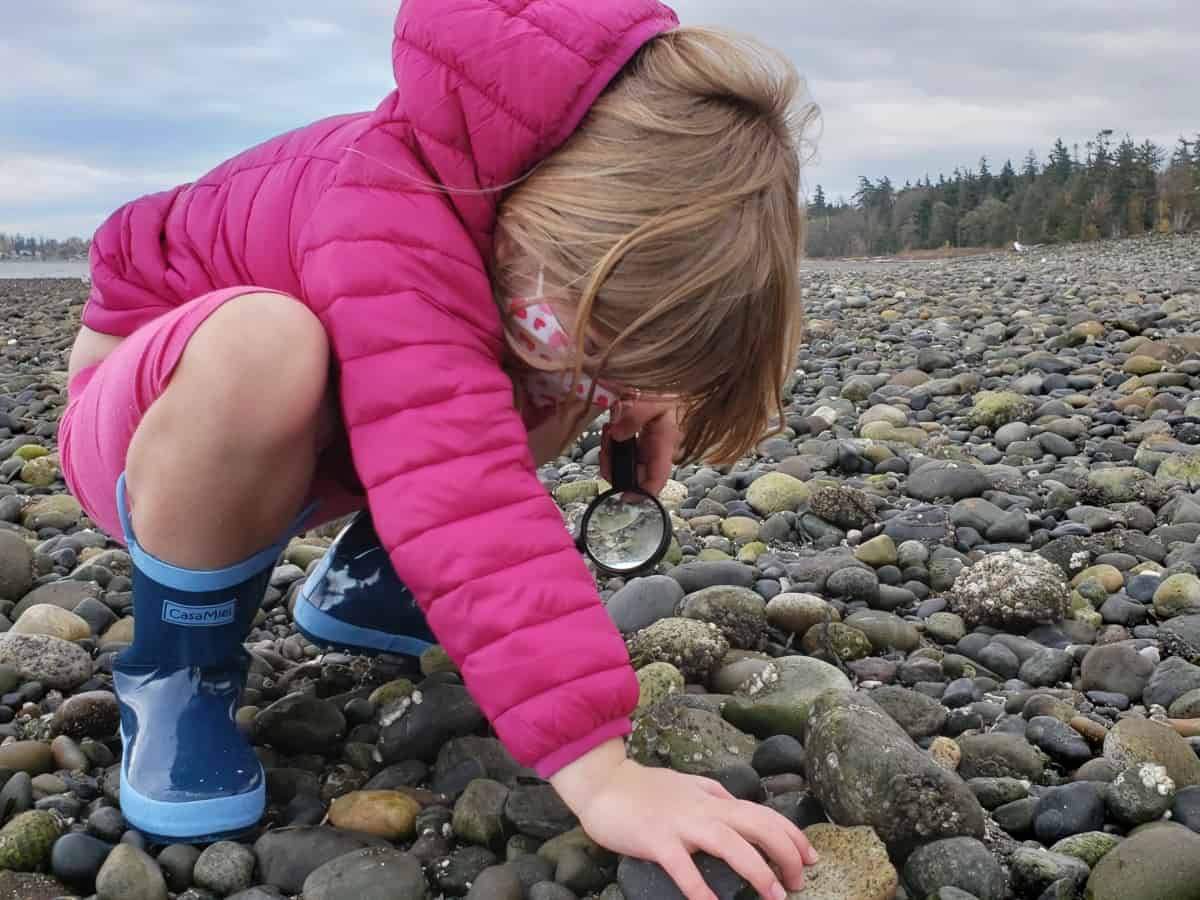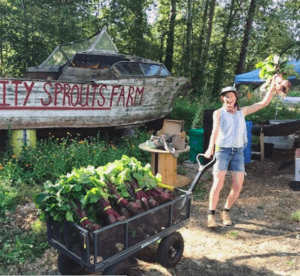
Reflections on the Connections Program
By Annah Young, 2020 Connections Coordinator
 I was nervous as I drove up to Kendall Elementary in northern Whatcom County on the first day of the Connections Program last October. It was pouring rain, I hadn’t been with students for a long time, and I hadn’t worked around other people yet during the pandemic. Since March, I’d been working alone or with one other person at my other job, operating a fresh market vegetable farm in Bellingham. In late September, North Cascades Institute was looking for a coordinator to get the program off the ground just as my farm season was ending, so it was perfect timing.
I was nervous as I drove up to Kendall Elementary in northern Whatcom County on the first day of the Connections Program last October. It was pouring rain, I hadn’t been with students for a long time, and I hadn’t worked around other people yet during the pandemic. Since March, I’d been working alone or with one other person at my other job, operating a fresh market vegetable farm in Bellingham. In late September, North Cascades Institute was looking for a coordinator to get the program off the ground just as my farm season was ending, so it was perfect timing.
As my nerves heightened and the rain pounded, I thought back to my hesitancies around the challenges of an in-person program during the coronavirus pandemic. I had been working over the past few weeks preparing schedules and diligently going through COVID-19 safety protocols. The instructors and I were entering a new space for educators, one with physical distancing rules, masks and an abundance of hand sanitizer. Despite these new dynamics, the Institute’s goal of connecting kids to nature and to each other remained unchanged. This work felt even more important in this moment, with schools closed since March and some students haven’t been around their friends or teachers for months.
The Connections Program is a collaborative effort between several local nonprofit environmental education organizations, driven by the Whatcom Coalition for Environmental Education (WCEE). In the fall of 2020, Connections ran outdoor education programming in three school districts in Whatcom County: Bellingham, Blaine and Mount Baker. The North Cascades Institute took the lead on coordinating the Mount Baker and Blaine locations.
I graduated from the Institute’s Masters in Environmental Education program in 2017, and since then my career path has drifted toward agriculture. Farming is the most tangible way for me to express myself and my preferred medium for teaching and learning about nature and community.
Environmental education for me has always been about creating and fostering relationships with nature while encouraging people to think critically about how they interact with each other. Over the past few months, working alone on the farm, I had been worried about kids’ lack of social connection (and my own too), so I was especially drawn to the program because all of these groups were thinking of creative ways to get kids back together safely. I was particularly drawn to Kendall, a rural town 45 minutes northeast of Bellingham, because I imagined that social isolation had hit this community particularly hard.
Connecting with students was hard at first. When a 6th grader gets off the bus and they haven’t been to school in 8 months, the first thing I want to do is go right up to them with a big welcoming smile, and let them know I care about them. Of course I couldn’t do all those things while maintaining physical distance and masking my smile. Despite these challenges, the instructors and I did our best and got creative with ways to interact.
On one of our sunny afternoons in Kendall, you could see snow dusting the tops of neighboring hills and students were playing Owl’s Nest in the field next to the elementary school. In the game students try to stealthily snatch the owl’s “egg” before they are noticed by their classmates. This game teaches students about the predators and prey in our local ecosystem but most importantly it allows them the opportunity to run and play outside.
The students also learned about science. They learned about macroinvertebrates, water quality, phenology, compost and food webs. The students took and tested water samples from salmon habitat next to the school. They made maps of the Nooksack River watershed and helped restore a local wetland by removing invasive plants. All of that is great, but what I think was most important is that they were able to laugh and play, reconnect with old friends and make new friends.
They got to experience conflict with their peers, reflect on their own emotions and learn about ways to resolve those disagreements. They were able to practice empathy and be surrounded by people that care about them. These are the invisible outcomes we can’t always quantify and these feel the most important right now.
This spring I will get back to work on the farm and the Connections Program will continue without me. Ultimately, through this experience, I finally allowed myself to laugh and play again after what has been a long 8 months. The kids gave me a sense of hope that I will carry with me into the new year.
Read more about the goals and partners involved with Connections in the blog post “Outdoor Learning During a Pandemic.”
Read a profile of this unique program on the Beetles Blog fr0m the Lawrence Hall of Science: “Partnerships in the Pandemic Spotlight: North Cascades Institute.”
Listen to a story about Connections by Education reporter Ashley Gross of KNKX / National Public Radio here.

